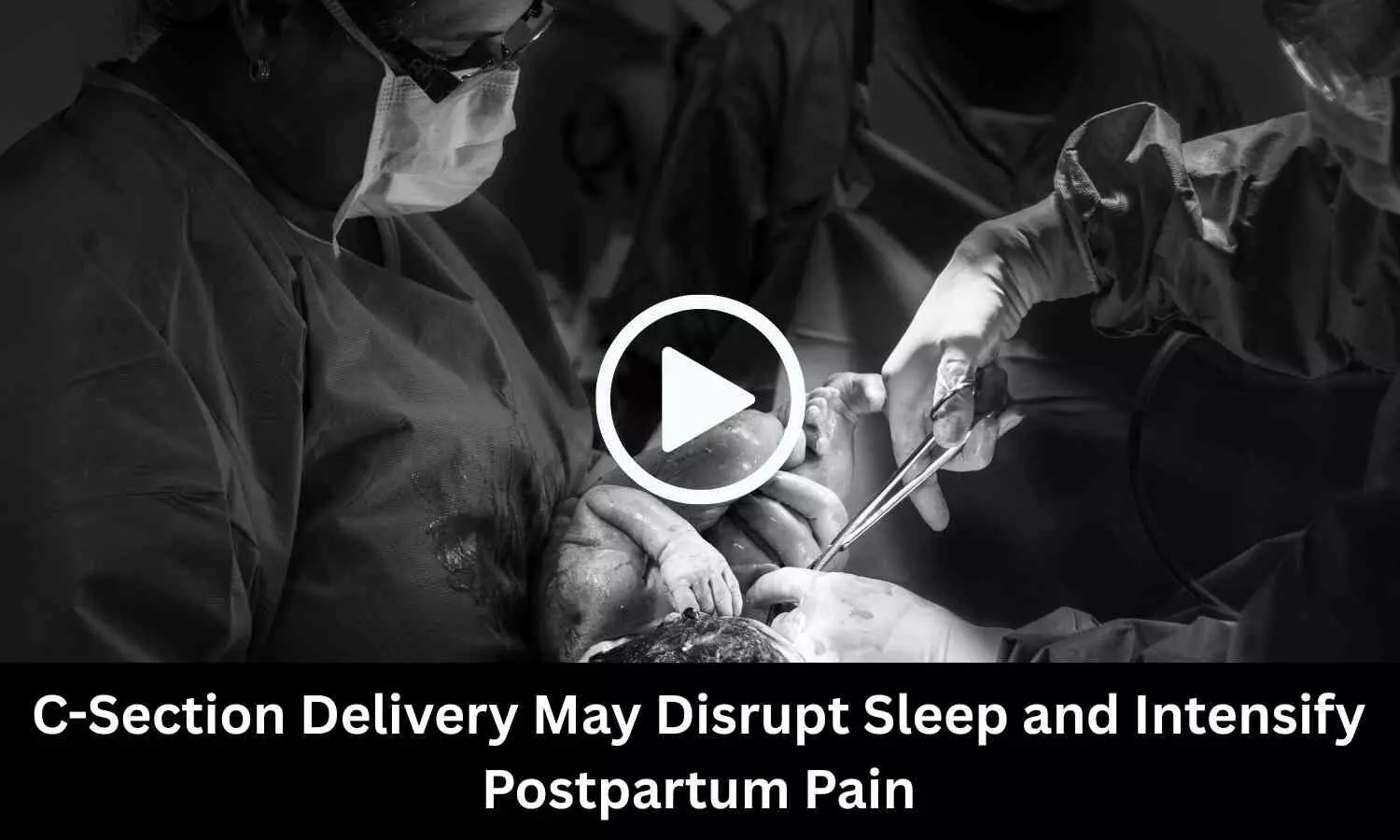C-Section Delivery May Disrupt Sleep and Intensify Postpartum Pain: Study Finds
- byDoctor News Daily Team
- 18 October, 2025
- 0 Comments
- 0 Mins

Women who deliver bycesarean section(C-section) are more likely to suffer from intensepostpartum painand developsleep disorders, according to new research presented at the ANESTHESIOLOGY 2025 annual meeting. The findings highlight the need for greater attention tosleepand pain management in the postpartum period, particularly among mothers recovering from surgical births. The study combined qualitative and quantitative methods to explore how childbirth type affects sleep and pain. In the qualitative portion, researchers interviewed 41 mothers—24 who had vaginal deliveries, 11 with planned C-sections, and six with unplanned C-sections—about their postpartum experiences. Among the C-section group, over two-thirds reported severe pain that interfered with sleep and daily functioning (73% of planned and 67% of unplanned), compared to just 8% among vaginal deliveries. The quantitative analysis examined data from over 1.5 million mothers who gave birth between 2008 and 2021 using a national insurance database. It revealed that women who had C-sections were 16% more likely to be newly diagnosed with sleep disorders such as insomnia, sleep deprivation, or obstructive sleep apnea within the first year after delivery. "Sleep is often overlooked in postpartum recovery, but it is central to a mother's physical and mental health," said Moe Takenoshita, M.B.B.Ch., the study’s lead author and postdoctoral scholar at Stanford University Center for Academic Medicine. "Cesarean delivery in particular appears to increase the risk for severe pain and sleep disorders, which can lead to postpartum depression, thinking and memory problems, and fatigue, as well as disrupt bonding with their babies and relationships with family and friends." Dr. Takenoshita emphasized that new mothers, especially those recovering from C-sections, should proactively manage pain and adopt strategies to improve sleep, such as resting when the baby sleeps, avoiding stimulants late in the day, and practicing relaxation techniques before bed. Reference:https://www.asahq.org/annualmeeting
Disclaimer: This website is designed for healthcare professionals and serves solely for informational purposes.
The content provided should not be interpreted as medical advice, diagnosis, treatment recommendations, prescriptions, or endorsements of specific medical practices. It is not a replacement for professional medical consultation or the expertise of a licensed healthcare provider.
Given the ever-evolving nature of medical science, we strive to keep our information accurate and up to date. However, we do not guarantee the completeness or accuracy of the content.
If you come across any inconsistencies, please reach out to us at
admin@doctornewsdaily.com.
We do not support or endorse medical opinions, treatments, or recommendations that contradict the advice of qualified healthcare professionals.
By using this website, you agree to our
Terms of Use,
Privacy Policy, and
Advertisement Policy.
For further details, please review our
Full Disclaimer.
Recent News
NMC approves 2,337 new PG medical seats for NEET P...
- 22 October, 2025
Rajasthan MBBS student airlifted from Kazakhstan a...
- 22 October, 2025
NEET SS 2025 now on December 26th, 27th: NBE
- 22 October, 2025
Medical Bulletin 22/October/2025
- 22 October, 2025
Daily Newsletter
Get all the top stories from Blogs to keep track.


0 Comments
Post a comment
No comments yet. Be the first to comment!